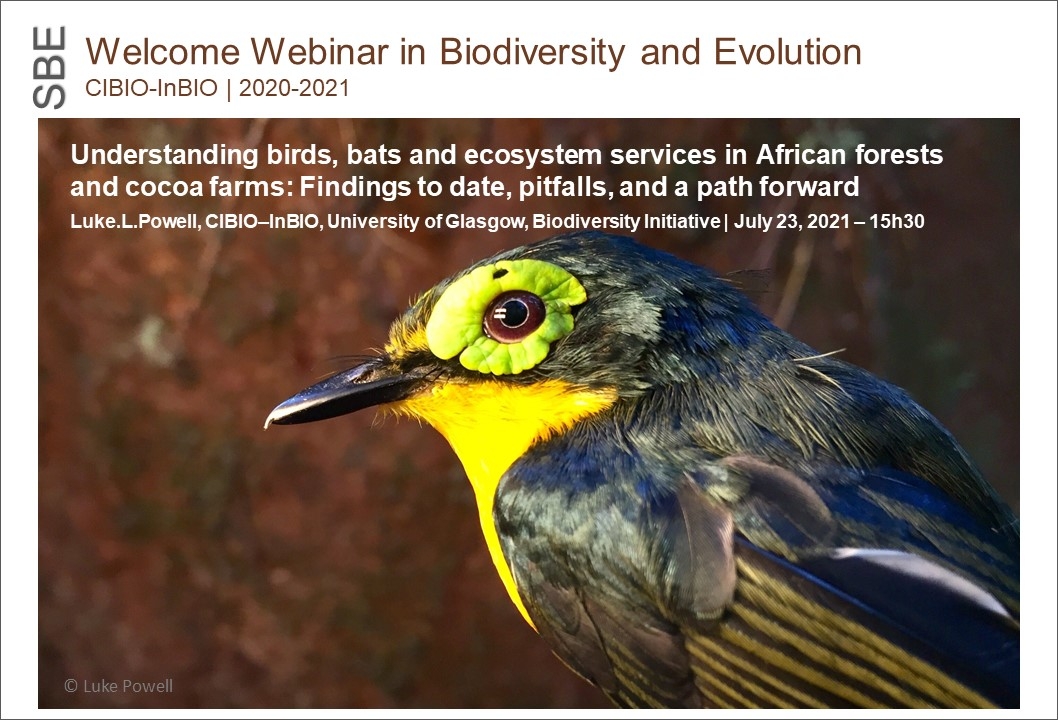Understanding birds, bats and ecosystem services in African forests and cocoa farms: Findings to date, pitfalls, and a path forward
23 Jul 2021 - Luke.L.Powell, CIBIO–InBIO, University of Glasgow, Biodiversity Initiative | 15h30

WELCOME WEBINAR IN BIODIVERSITY AND EVOLUTION
Cocoa, which fuels the multi-billion dollar chocolate market, is grown in tropical rainforest—mostly in Sub-Saharan Africa on family owned farms. African farmers typically rely on nature for pest insect removal and pollination, but neither farmers nor biologists know which birds, bats or arthropods provide these services.
Here we will provide an overview of the Sustainable Cocoa Project in Cameroon. Specifically, the project seeks to understand:
1) How cocoa management affects bird and bat diversity
2) Which birds and bats consume cocoa pests and malaria-transmitting Anopheles mosquitos (via diet DNA metabarcoding)
3) How much these insectivores save farmers (via exclusion experiments)
Alpha diversity of birds in cocoa was similar to that of primary forest; however, insectivores, forest specialists and ant-followers were far less common in cocoa—particularly sunny cocoa. We have found 11 bird and six bat species that eat the primary coca pest in Africa: brown capsids. Further, one bird and 10 bat species eat Anopheles mosquitos—the genus that transmits human malaria. Exclusion experiments show that cocoa trees excluding insectivorous birds or bats have more pests and produce 27% fewer pods.
Well-managed cocoa agroforestry can be a valuable component of an ecologically functional landscape but not a substitute for primary rainforest. As the demand for cocoa increases, we seek a win-win framework in which both biodiversity and African farmers benefit through sustainable and profitable management of cocoa.
Luke L. Powell, PhD, is a Principal Researcher in the TROPIBIO program at CIBIO, Affiliate Staff at the University of Glasgow and the Founding Director of the NGO Biodiversity Initiative. He received his PhD at Louisiana State University, where he studied the effects of rainforest disturbance on birds of the Brazilian Amazon. Since then he has studied interspecific competition in birds at the Smithsonian Migratory Bird Center, and sustainable cacao agroforestry at Durham University and as a Marie Curie Fellow with the University of Glasgow. He has been working in tropical rainforests since 2005.
[Host: Fernanda Martins, Tropical Biology - TROPBIO]